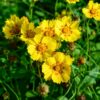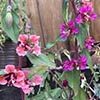Key Takeaways
- Pet safe fertilizers are essential to prevent toxicity and allergic reactions in pets.
- Understanding the difference between commercial and natural fertilizers can help you make safer choices for your pets.
- Commercial pet safe fertilizers may contain fewer harmful chemicals, but it’s crucial to read labels carefully.
- Natural fertilizers often provide a safer alternative, but some organic materials can still be dangerous if ingested.
- Application safety measures include keeping pets away during and immediately after fertilizer application and monitoring for signs of poisoning.
“Pet Seasonal Allergies: Symptoms …” from www.ballantynevet.com and used with no modifications.
Pet Safe Fertilizers: Healthy Growth for Furry Friends
As a pet owner, your garden is more than just a space for plants to thrive; it’s a playground for your four-legged family members. This means that the fertilizers you choose have to do double duty – they must support plant growth and ensure the safety of your pets. Here, we’ll dive into what makes a fertilizer pet safe, compare commercial brands with natural ingredients, and provide you with the knowledge to keep your pets healthy and your garden flourishing.
Why Pet Safety Matters in Fertilizers
First things first, let’s talk about why pet safety in fertilizers is non-negotiable. Most fertilizers contain a mix of nitrogen, phosphorus, and potassium, which are great for plants but can be harmful to pets if ingested. Besides that, some products include chemicals that can cause skin irritations or more severe health issues in animals. Therefore, as pet owners, we must be vigilant about the products we use in our gardens and lawns.
Decoding the Ingredients
To make an informed decision, it’s vital to understand what’s in your fertilizer. Check the label for active ingredients and look out for herbicides and pesticides, which are often included in ‘weed and feed’ products. If the label contains words like ‘urea,’ ‘ammonium phosphate,’ or ‘potash,’ these are signs of chemical ingredients that may not be pet friendly.
Remember, the term ‘organic’ can be misleading. While organic fertilizers may be derived from natural sources, they can still be harmful if ingested by pets. For example, bone meal is an organic option that’s great for plants but can cause gastrointestinal obstruction in dogs if eaten in large quantities.
Commercial vs. Natural Fertilizers
When it comes to pet safe options, we’re often faced with a choice between commercial and natural fertilizers. Commercial products designed to be pet safe usually have undergone testing to ensure they’re non-toxic. On the other hand, natural fertilizers can be made at home from everyday ingredients, offering a level of control over what goes into your soil.
| Criteria | Commercial Pet-Safe Fertilizers | Natural Pet-Safe Fertilizers |
|---|---|---|
| Safety for Pets | Milorganite, Scotts, Safer Brand, Espoma, GreenView prioritize pet safety with their products[4][3]. | Seaweed, fish emulsion, grass clippings, horse manure, compost, bone meal, and blood meal are natural options safe for pets[5]. |
| Effectiveness | Commercial options like Scotts and GreenView offer effective lawn care solutions[3][2]. | Natural solutions such as seaweed and compost provide effective nutrients for grass growth[5]. |
| Environmental Impact | Commercial fertilizers like Milorganite and Restore Fertilizer focus on eco-friendly practices[4]. | Natural fertilizers like grass clippings and compost are environmentally friendly options[5]. |
Understanding Commercial Pet Safe Fertilizer Options
Commercial pet safe fertilizers are specifically formulated to minimize the risk of harm to your pets. They tend to be less concentrated and free from the most dangerous chemicals. Look for products labeled as ‘pet safe’ or ‘pet friendly,’ but don’t stop there – always read the fine print to confirm their safety.
Pros of Commercial Fertilizers
Commercial fertilizers have a few advantages up their sleeve:
- They’re scientifically formulated for specific plant needs, which can lead to better growth results.
- They often come with clear instructions and application guidelines, which can help ensure proper use and safety.
- Many are rigorously tested for safety standards, giving you peace of mind.
Cons of Commercial Fertilizers
However, there are some downsides to keep in mind:
- Even pet safe brands may contain ingredients that can cause minor irritations or allergic reactions.
- They can be more expensive than natural options.
- Some may still pose a risk if not used according to the instructions.
Natural Ingredients – A Safer Alternative?
Shifting focus to natural fertilizers, these are often seen as the safer choice for pet-friendly gardening. They’re made from organic materials like compost, manure, or bone meal, and they release nutrients slowly, reducing the risk of over-fertilization and chemical run-off.
Benefits of Natural Fertilizers
Natural fertilizers come with their own set of benefits:
- They improve soil structure and promote healthy microbial activity.
- They’re less likely to cause harm to pets if used correctly, as they’re free from synthetic chemicals.
- They’re often less expensive and can be made from kitchen scraps and yard waste.
But it’s not all roses:
Potential Risks with Natural Options
Even natural fertilizers have their risks:
- Some natural ingredients can be attractive to pets but are dangerous if eaten in large amounts.
- Improperly composted manure can harbor pathogens harmful to both pets and humans.
- They require more knowledge to use effectively, as over-application can still lead to nutrient imbalances.
Leading Commercial Brand Analysis
Let’s take a closer look at some of the leading commercial brands offering pet safe fertilizers, comparing their mixes and how they stack up in terms of safety for our furry friends.
Brand A: Tailored for Turf, Safe for Paws
Brand A prides itself on a pet safe formula that’s gentle on paws but tough on weeds. This brand typically uses lower concentrations of chemicals and often includes natural additives to minimize the risk of irritation or toxicity. The key features of Brand A’s pet safe fertilizer include:
- Non-toxic ingredients that are safe for pets once the product has dried on the lawn.
- Added soil conditioners to promote lawn health naturally.
- Products are often certified by environmental or pet health organizations.
Most importantly, Brand A emphasizes the importance of following application instructions for the safety of pets, which usually involves keeping animals off the lawn until the fertilizer has been absorbed or dried.
Brand B: Eco-Friendly and Pet Conscious
Brand B focuses on eco-friendly solutions that are as kind to the environment as they are to pets. They often utilize organic or naturally derived ingredients that break down into non-harmful components. Features that stand out for Brand B include:
- Organic-based fertilizers that reduce the chance of chemical run-off and groundwater contamination.
- Formulations that avoid the use of bone meal and other products that might attract pets.
- Clear labeling that outlines the safe use around animals and children.
While Brand B’s products are pet conscious, it’s still critical to apply them correctly and supervise pets during their initial introduction to the treated area.
Brand C: The Cost-Effective Pet-Safe Solution
Brand C offers a more budget-friendly option without compromising on pet safety. Their products often combine both synthetic and natural ingredients to provide a balanced nutrient profile while keeping pets in mind. Notable aspects of Brand C’s fertilizers are:
- Affordable pricing, making pet safe options accessible to a wider audience.
- Products that are often enriched with enzymes or beneficial bacteria to support a healthy lawn ecosystem.
- Clear warnings and guidelines to ensure pet owners use the products safely.
Brand C’s approach ensures that pet safety doesn’t have to come with a hefty price tag, but careful application is still necessary to protect your pets.
DIY Natural Fertilizer Solutions
For those who prefer a hands-on approach, creating your own natural fertilizer can be a rewarding and pet-safe alternative. By using everyday household ingredients, you can nourish your garden while keeping it safe for pets.
Household Ingredients for Garden Health
Many common kitchen scraps and yard waste can be turned into effective natural fertilizers. For example, coffee grounds are rich in nitrogen, which is essential for leafy growth, and eggshells provide a good source of calcium for plant cell structure. Just remember to compost these materials properly before use to avoid attracting pets with the scent of food.
Combining Natural Ingredients for Best Results
Creating a balanced DIY fertilizer often involves combining different natural ingredients. Here’s a simple recipe to get you started:
- Mix equal parts of compost, grass clippings, and coffee grounds for a nutrient-rich blend.
- Add crushed eggshells to the mix for a calcium boost.
- Apply the mixture to your soil, making sure it’s thoroughly incorporated to prevent pets from digging it up.
By using these household items, you can create a pet safe fertilizer that also recycles waste, making it a win-win for your home and the environment.
Application Safety Measures
Regardless of whether you choose a commercial or natural fertilizer, applying it safely is crucial for protecting your pets.
Best Practices for Fertilizer Use Around Pets
When fertilizing your garden or lawn, follow these best practices:
- Keep pets indoors during application and for the recommended time afterward, which is usually until the fertilizer has been watered in and the area has dried.
- Store fertilizers out of reach of pets to prevent accidental ingestion.
- Use spreaders and other application tools to ensure even distribution and avoid leaving piles of fertilizer that could attract pets.
By adhering to these practices, you can greatly reduce the risk of your pet coming into contact with harmful substances.
Recognizing and Responding to Fertilizer Exposure
In the event that your pet does come into contact with fertilizer, being able to recognize the signs of exposure is important. Symptoms of fertilizer poisoning can include:
- Vomiting or diarrhea
- Excessive drooling
- Difficulty breathing
- Lethargy or weakness
If you notice any of these symptoms, contact your veterinarian immediately. Provide them with information about the fertilizer used, and follow their instructions for care.
Choosing the right fertilizer for your garden is about more than just plant health; it’s about ensuring the well-being of your beloved pets. With the information provided here, you’re now equipped to make informed decisions that will keep your garden thriving and your pets safe and happy.
Expert Recommendations on Fertilizer Selection
When selecting a fertilizer, the safety of your pets should be a top priority. Experts recommend opting for products that are specifically labeled as ‘pet safe’ or ‘pet friendly.’ It’s important to read the ingredients list carefully, as some products may still contain harmful substances even if they claim to be safe for animals. For further guidance, consider consulting dog-friendly fertilizers recommendations. If you’re ever in doubt, reach out to a local garden center or a veterinarian for advice on pet-safe gardening practices.
Connect with Vet Services for Concerns
If you suspect that your pet has been exposed to a potentially harmful fertilizer, it’s crucial to seek veterinary care immediately. Keep the fertilizer packaging, as it will provide your vet with valuable information on the product’s ingredients and potential toxicity. Vets can offer guidance on how to prevent exposure and what to do if an accident occurs, ensuring the safety and health of your pets.
Building a relationship with your vet also means you have a trusted resource for any questions about your pets’ health in relation to your gardening habits. Regular check-ups and open communication with your vet can help prevent issues before they arise.
FAQs
Frequently asked questions about pet safe fertilizers help clarify common concerns and provide quick, reliable information for pet owners. Here are some of the most common queries:
How Long After Fertilizing Is It Safe for Pets?
It’s generally recommended to keep pets off the lawn or garden for 24 to 72 hours after applying fertilizer. This allows time for the fertilizer to be absorbed into the soil and for any chemicals to dissipate. Always follow the specific instructions provided on the fertilizer’s packaging, as different products may have varying safety guidelines.
For liquid fertilizers, wait until the solution has dried completely before allowing pets to re-enter the area. For granular types, it may be best to water the area after application to help the granules break down and reduce the risk of ingestion by curious pets.
If you’re using a natural fertilizer, such as compost, the risk is lower, but it’s still a good idea to keep pets away until the material is fully integrated into the soil. This prevents them from ingesting or rolling in the fertilizer, which could lead to an upset stomach or skin irritation.
Can Pets Help Determine the Best Fertilizer to Use?
While pets can’t directly help you choose the best fertilizer, their behavior and health can be indicators of whether the product you’re using is safe for them. If your pet shows signs of avoidance or distress after application, or if you notice any health changes, it might be time to reconsider your choice of fertilizer. Always observe your pets’ reactions and consult with a veterinarian if you have concerns about the products you’re using.
What Are Common Signs of Fertilizer Poisoning in Pets?
Signs of fertilizer poisoning in pets can vary depending on the type and amount of fertilizer ingested. Common symptoms to watch for include:
- Vomiting
- Diarrhea
- Excessive drooling
- Abnormal posture due to abdominal pain
- Difficulty breathing
- Seizures
If you notice any of these symptoms, contact your vet immediately. Prompt treatment is essential for the best outcome.
How Often Should I Fertilize My Garden with Pets in Mind?
The frequency of fertilization should be based on the needs of your plants rather than the presence of pets. However, when pets are part of your household, it’s important to use pet safe fertilizers and apply them less frequently to minimize the risk of exposure. As a general rule, fertilizing once per season is sufficient for most gardens. Always follow the recommended application rates to avoid over-fertilization, which can be harmful to both plants and pets.
Consider using slow-release or time-release fertilizers, as they are less likely to be immediately harmful if a pet comes into contact with them. Additionally, these types of fertilizers reduce the need for frequent application, limiting your pets’ exposure to the products.
Remember, the health of your pets is as important as the health of your garden. By choosing pet safe fertilizers and following recommended application guidelines, you can ensure a thriving garden that’s safe for all members of your family.
Are There Pet Safe Fertilizers That Also Deter Pests?
Yes, there are pet safe fertilizers available that also contain ingredients to deter common garden pests. When looking for such products, search for organic options that use natural pest deterrents like neem oil or diatomaceous earth. These ingredients are generally safe for pets when used as directed and can help keep your garden pest-free.
It’s important to read the labels carefully and ensure that any pest-deterring ingredients included in the fertilizer are non-toxic to pets. Additionally, always apply these products according to the manufacturer’s instructions to avoid overuse, which could potentially harm beneficial insects or lead to unintended health risks for your pets.
Note: The table above compares commercial pet-safe fertilizers like Milorganite and Scotts with natural pet-safe solutions such as seaweed and compost based on safety for pets, effectiveness, and environmental impact.
Citations:
[1] https://www.amazon.com/pet-friendly-fertilizer-lawns/s?k=pet+friendly+fertilizer+for+lawns
[2] https://www.lowes.com/pl/Safer-for-pets–Lawn-fertilizer-Lawn-care-Lawn-garden/2610376442062
[3] https://www.caninejournal.com/pet-safe-lawn-fertilizer/
[4] https://erbertlawns.com/pet-safe-fertilizer/
[5] https://www.goldenretrieverforum.com/threads/pet-safe-lawn-fertilizer.408890/





